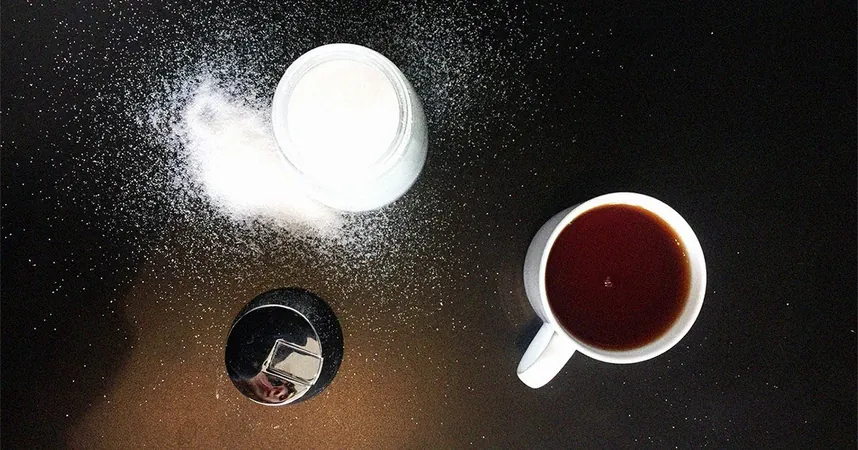
Surprising Discovery: Sucralose Might Increase Your Hunger!
2025-04-05
Author: Li
Introduction
In a groundbreaking study, researchers have unveiled that sucralose, a popular non-caloric sweetener, could be messing with our brain's hunger signals. Could this common ingredient be sabotaging your diet? Let's dive into the details!
Research Background
Conducted by scientists at the University of Southern California's Diabetes and Obesity Research Institute, the research aimed to understand how sucralose affects brain activity related to hunger. The team used MRI scans to analyze blood flow in the hypothalamus, the part of the brain responsible for regulating hunger and body temperature, after participants consumed different beverages: a sucralose-sweetened drink, a sugar-sweetened drink, or plain water.
Key Findings
The results were eye-opening! Unlike water, sucralose led to increased blood flow in the hypothalamus, suggesting that it could trigger intense hunger signals. When compared to sucrose (table sugar), sucralose appeared to provoke even stronger hunger responses, potentially leading to overeating.
Study Demographics
The study involved 75 healthy young adults, aged 18 to 35, categorized by weight: normal, overweight, and obese. Participants attended multiple sessions where they drank either a sucralose-sweetened beverage, a sugar-sweetened drink, or water. After consuming the drinks, researchers tracked brain activity through MRIs at intervals of 10, 35, and 120 minutes.
Observations
What they found was that sucralose consumption led to a significant increase in hypothalamic activity, notably stronger than the responses observed with sugar or water. Furthermore, while those at a healthy weight showed a robust reaction to sucralose, individuals in the overweight category didn't exhibit notable differences in brain activity across the beverages. Interestingly, those classified as obese reported a heightened hunger response to sucralose compared to water, though not when compared to sugar.
Gender Differences
Gender differences emerged too: women displayed a more substantial response to sucralose than men, suggesting hormonal factors might influence how different sexes react to sweeteners.
Brain Response Changes
The study also uncovered that the structure of the brain responses changed significantly with sucralose consumption. There was an enhanced connection between the hypothalamus and the anterior cingulate cortex—a brain area tied to reward processing—which could lead to increased cravings and a more pronounced desire for food.
Participants' Hunger Levels
Participants reported similar hunger levels before the trials regardless of the drink choice. However, after consuming sucralose, they expressed greater hunger compared to when they drank sugar or water, indicating that sucralose might interfere with the signals that tell us we’re full.
Conclusion
These findings are a stark reminder for the millions using sweeteners like sucralose in their diets. While these zero-calorie alternatives seem great for cutting calories, they might inadvertently stimulate greater appetites, leading to unintended overeating.
Future Implications
As the research community continues to investigate the potential health implications of artificial sweeteners, consumers need to remain aware of how these additives might impact their hunger and eating behaviors. Could your quest for sweetness be leading you toward more cravings? Only time and further research will tell!

 Brasil (PT)
Brasil (PT)
 Canada (EN)
Canada (EN)
 Chile (ES)
Chile (ES)
 Česko (CS)
Česko (CS)
 대한민국 (KO)
대한민국 (KO)
 España (ES)
España (ES)
 France (FR)
France (FR)
 Hong Kong (EN)
Hong Kong (EN)
 Italia (IT)
Italia (IT)
 日本 (JA)
日本 (JA)
 Magyarország (HU)
Magyarország (HU)
 Norge (NO)
Norge (NO)
 Polska (PL)
Polska (PL)
 Schweiz (DE)
Schweiz (DE)
 Singapore (EN)
Singapore (EN)
 Sverige (SV)
Sverige (SV)
 Suomi (FI)
Suomi (FI)
 Türkiye (TR)
Türkiye (TR)
 الإمارات العربية المتحدة (AR)
الإمارات العربية المتحدة (AR)